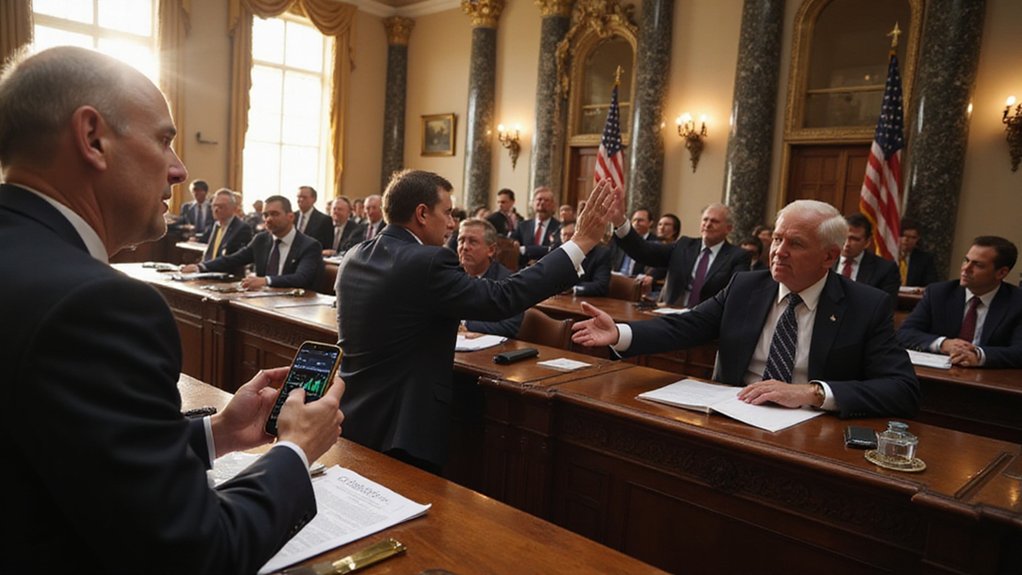The Senate has delivered what many considered impossible just months ago: a bipartisan regulatory framework for the $250 billion stablecoin market, passing the GENIUS Act by a commanding 68-30 margin that surpassed even optimistic vote counts.
This landmark legislation represents the Senate‘s first foray into thorough cryptocurrency regulation, targeting digital assets pegged to traditional currencies like the dollar.
The bill’s journey, however, proved anything but stable—ironic for legislation governing stablecoins—as negotiations nearly derailed over concerns about Trump family business ventures in the crypto space.
The initial bipartisan momentum from March’s Banking Committee approval hit turbulence when Democrats raised pointed questions about potential conflicts of interest.
Was it coincidence that stronger anti-corruption safeguards suddenly became non-negotiable?
Sometimes the most revealing moments in politics arrive disguised as procedural amendments—transparency demands breeding their own uncomfortable transparency.
The resulting procedural gymnastics (multiple votes, committee revisions, and behind-closed-doors negotiations) demonstrated how even ostensibly technical financial regulation becomes entangled with political realities.
Eighteen Democrats ultimately crossed party lines, suggesting the bill’s consumer protection provisions and national security measures outweighed their corruption concerns.
The 60-vote threshold requirement made such bipartisan cooperation essential, transforming what could have been partisan grandstanding into actual legislative compromise.
The regulatory clarity promises significant implications for an industry long operating in legal gray areas.
Stablecoin issuers now face defined oversight requirements, while consumers gain protections previously absent from this quarter-trillion-dollar market.
The framework addresses financial stability concerns that regulators have harbored about cryptocurrencies’ potential systemic risks.
Government officials must now disclose stablecoin holdings exceeding $5,000 as part of the new transparency requirements.
Yet the political subtext remains inescapable.
The anti-corruption amendments—hastily inserted after Trump family crypto dealings raised eyebrows—highlight how personal financial interests increasingly intersect with policy-making.
Industry leaders emphasize that comprehensive crypto auditing services will become essential for compliance as regulatory scrutiny intensifies.
The irony cuts deeper: legislation designed to bring transparency to digital currencies required last-minute transparency measures for its own passage.
The GENIUS Act’s success may signal broader acceptance of cryptocurrency’s permanence in American finance, moving beyond whether to regulate toward how to regulate effectively.
For an industry built on decentralization and disruption, this embrace of federal oversight represents either maturation or capitulation—depending on one’s perspective about innovation versus institutional control.









